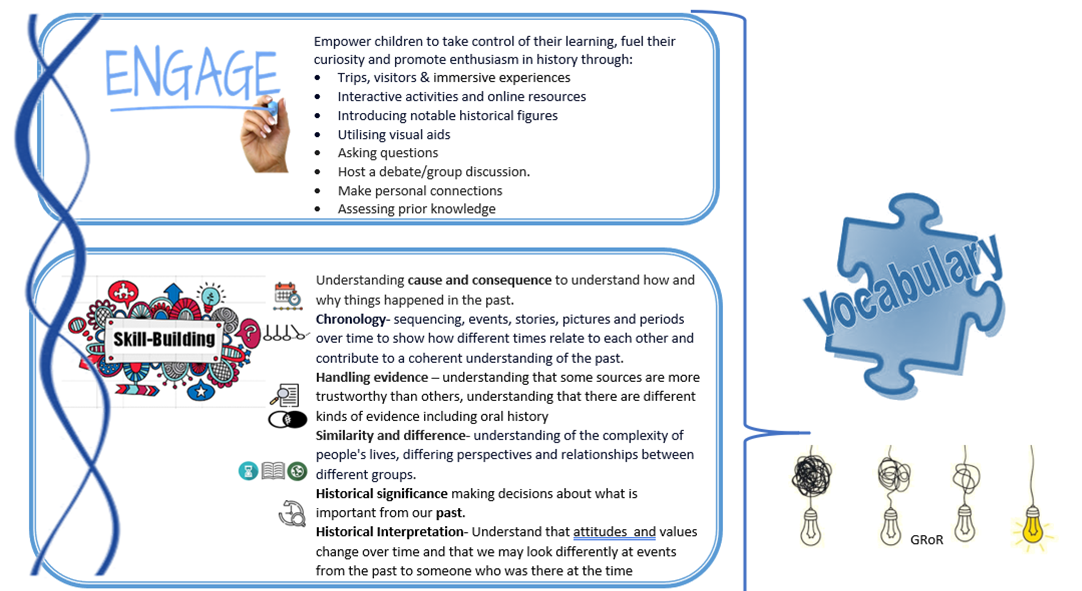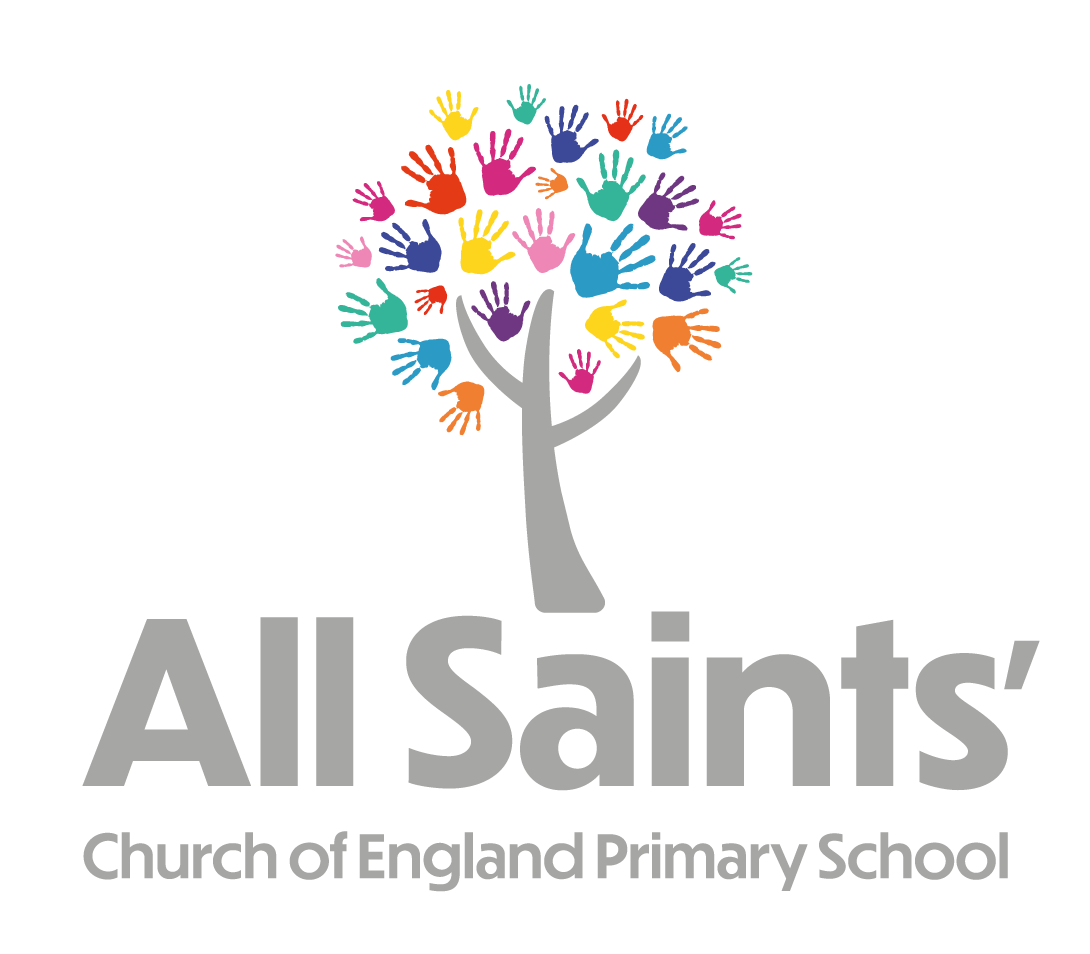1. What does History look like at All Saints'?

The All Saints' Approach to our history curriculum aims for our children engage, and explore, and to make progress through continual opportunities to apply their accumulating knowledge. The content of our curriculum is focused on providing opportunities for the children to recall prior learning and build upon their knowledge and build skills through meaningful links within, and across, subjects. The areas of learning and the order in which it is taught has been carefully considered and based around concept planning. This allows an explorative, investigative approach where abstract terms/vocabulary, such as ‘empire’, ‘migration’ and ‘civilisation’ are the drivers of our planning.
We engage children through a variety of learning styles in our exciting lessons that are driven through discussion, drama and role play, puzzles to solve and many opportunities to apply the skills they have acquired. Our children are challenged in their learning through justifying their reasoning, referring to sources studied, whilst considering bias and cause and effect. Their growing understanding of chronology allows them to consider other cultures and civilisations present at the same point in time, so that they can draw comparisons, whilst being compassionate and understanding of cultural differences.
As a Rights Respecting school, our children’s history learning is further supported by explicit reflection on the diversity of societies and relationships between different groups in relation to the articles of the Convention on the Rights of the Child. Questions of social justice and inequality are continually explored and considered in relation to the experiences of children in the past.
When considering the complexity of people’s lives and the challenges of their time, the children also reflect on the identity and character of historical figures and of their own identity and place, through our Christian Values.
At All Saints’, we believe that understanding history gives us a better understanding of the world, of our communities and of ourselves.


